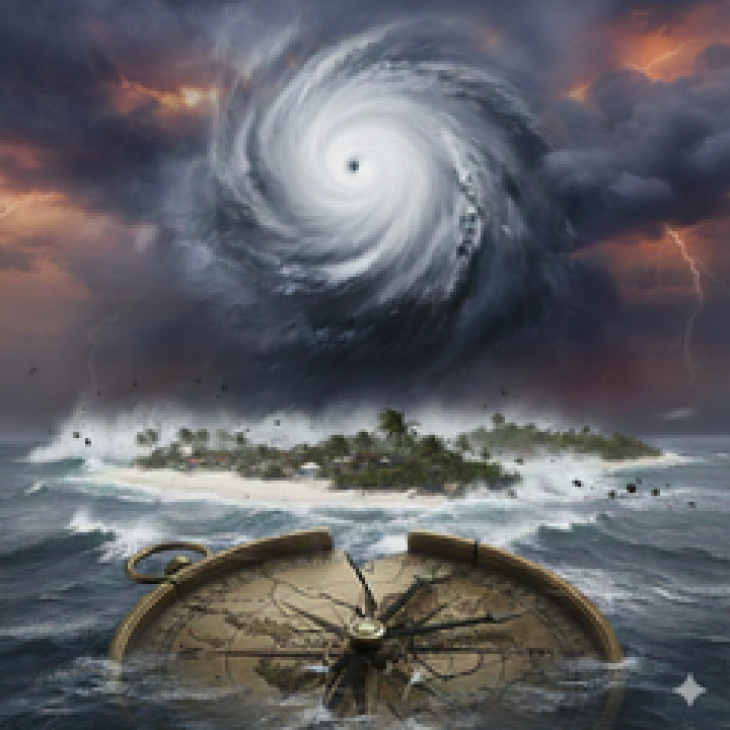
By Publisher Ray Carmen
The Caribbean has always been a region of breathtaking beauty and tumultuous weather. But in 2025, the islands are facing a new reality: hurricanes are no longer seasonal visitors—they are reshaping life, economies, and even culture across the archipelago.
A Rising Tide of Storms
Meteorologists have long warned that climate change would intensify storms. The Atlantic hurricane season has become longer, stronger, and more unpredictable. In recent years, islands like Jamaica, Puerto Rico, and the Bahamas have witnessed Category 5 storms arriving with unprecedented ferocity, leaving behind trails of destruction that challenge not just recovery efforts but the very way of life.
Economies Under Pressure
Tourism—the lifeblood of the Caribbean—is particularly vulnerable. Luxury resorts, local businesses, and entire coastal towns have been forced to rebuild repeatedly. Economists warn that without robust climate adaptation strategies, GDP losses could escalate into billions over the next decade. Farmers, too, face uncertainty: saltwater intrusion, erratic rainfall, and soil erosion threaten staple crops like bananas, sugar, and coffee, forcing a rethink of traditional agricultural practices.
The Human Toll
Beyond economics, hurricanes strike at the core of Caribbean identity: communities, families, and history. Entire villages have been displaced, cultural landmarks submerged, and local traditions interrupted. Yet, amid devastation, the islands show resilience. Communities rebuild, aid networks evolve, and locals leverage technology to predict, prepare for, and survive storms more effectively than ever before.
Technology to the Rescue
Satellite monitoring, AI-driven early warning systems, and mobile communications are transforming disaster preparedness. Islands are increasingly turning to “smart hurricane solutions,” including climate-resilient housing, emergency power grids, and sophisticated evacuation plans. The Caribbean may be a region of storms, but it is also becoming a laboratory of innovation in human survival.
A Call to Global Action
“Hurricane Age” is not just a Caribbean story—it is a warning to the world. Rising sea levels, stronger storms, and shifting climate patterns are global phenomena. The region’s survival depends not only on local ingenuity but on international cooperation, sustainable development, and urgent climate action.
Conclusion
As the Atlantic churns with increasing fury, the Caribbean is being tested like never before. Yet, there is hope. The islands’ unique blend of resilience, innovation, and community spirit may yet turn this era of climate chaos into a testament to human determination—and a blueprint for the world.




